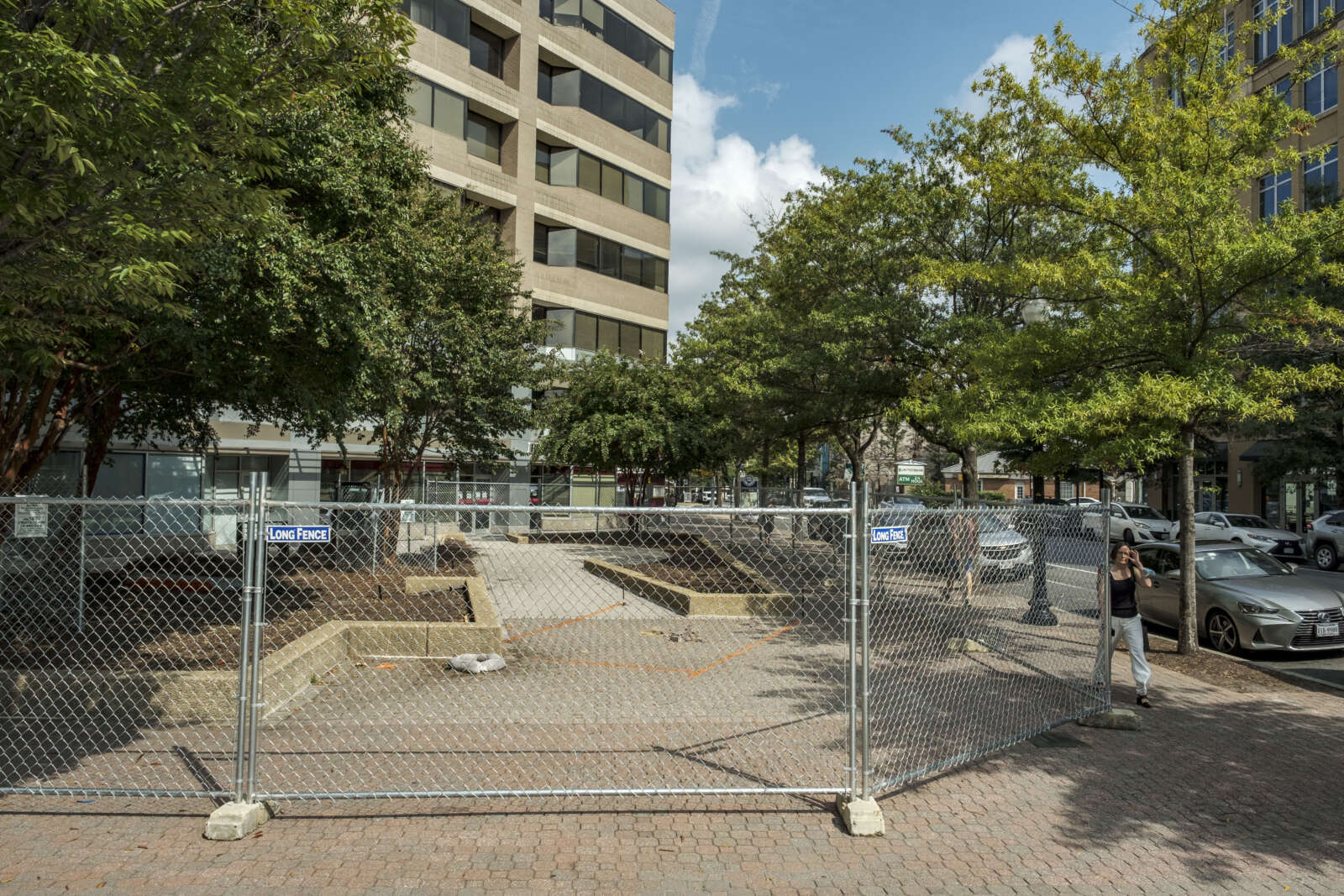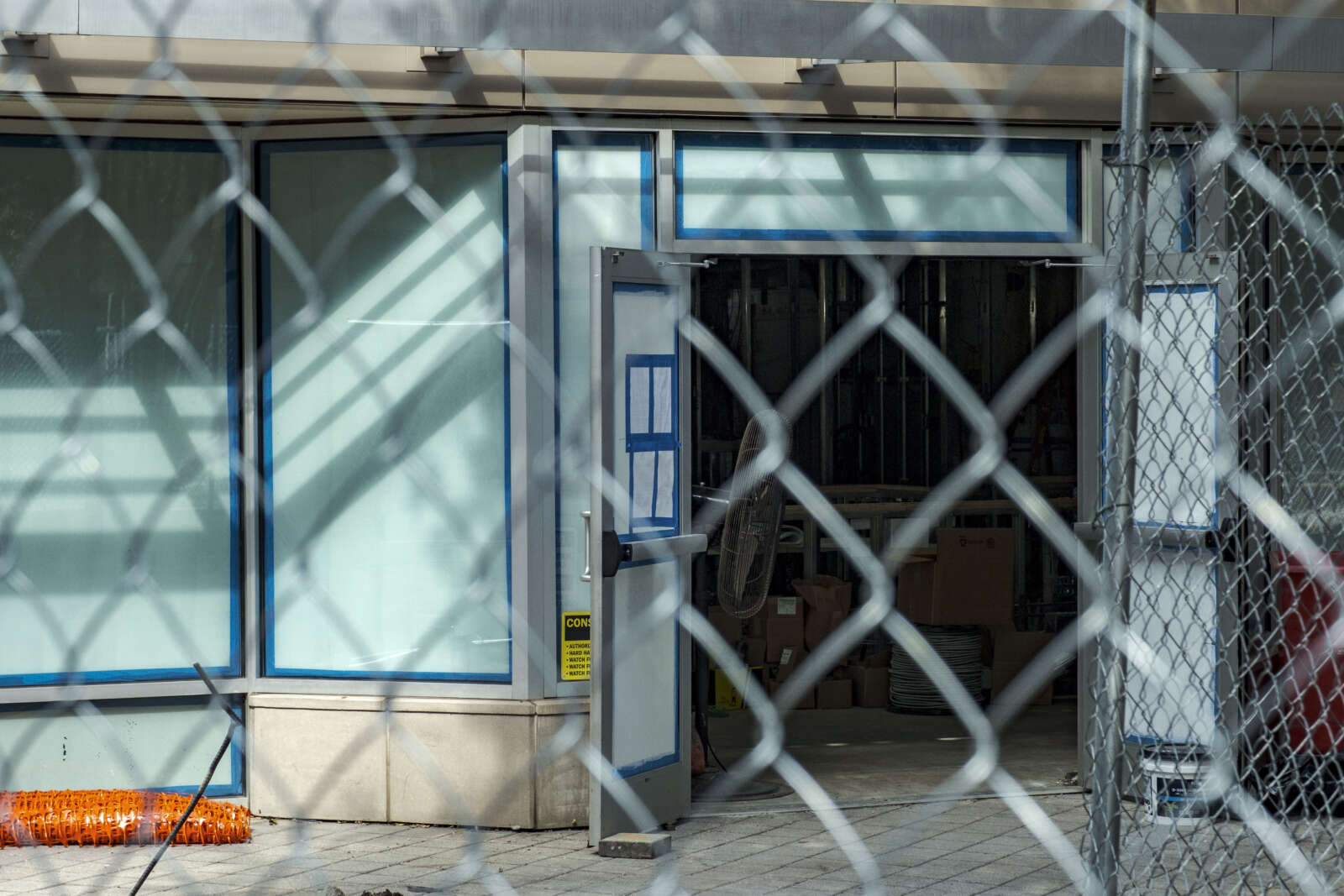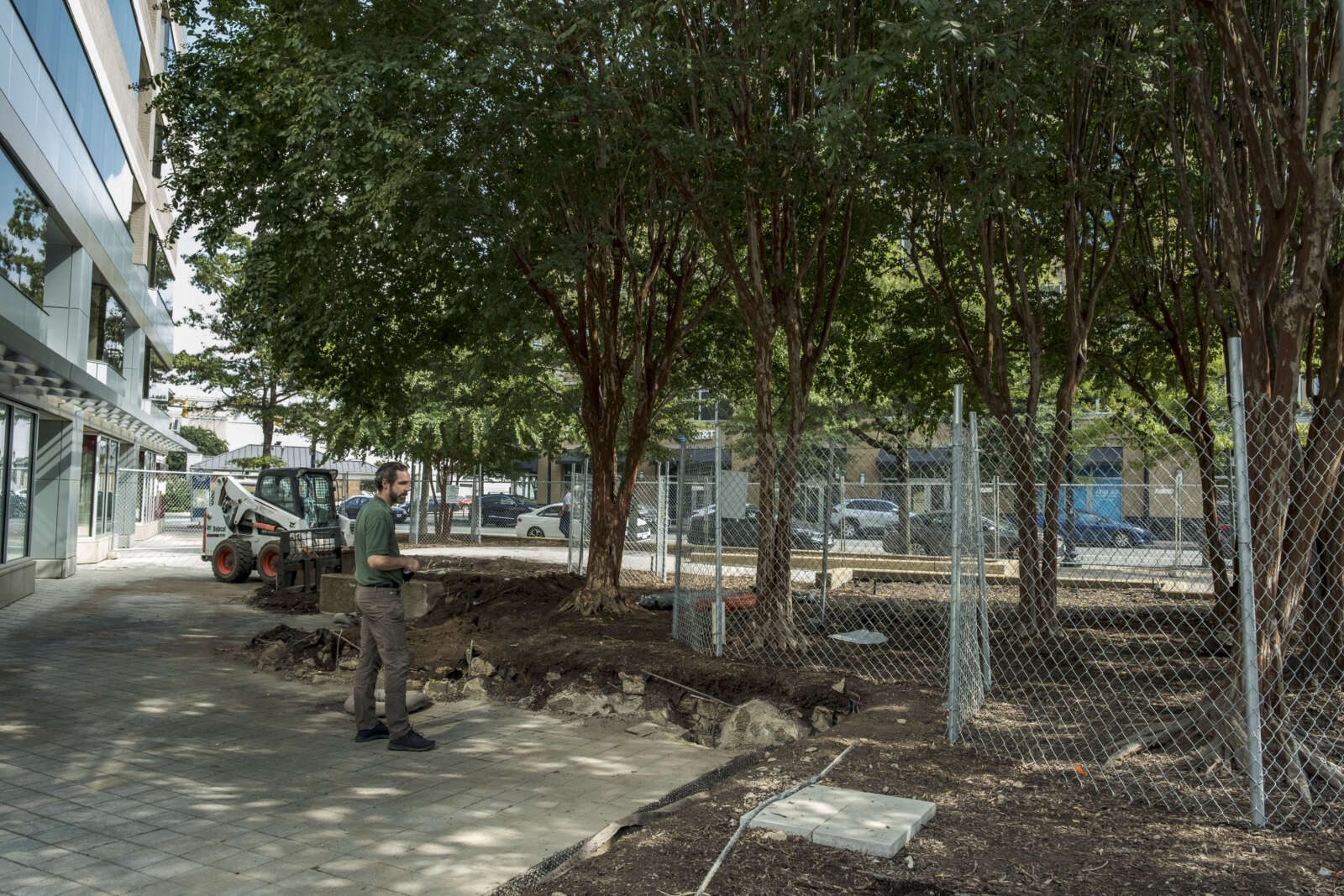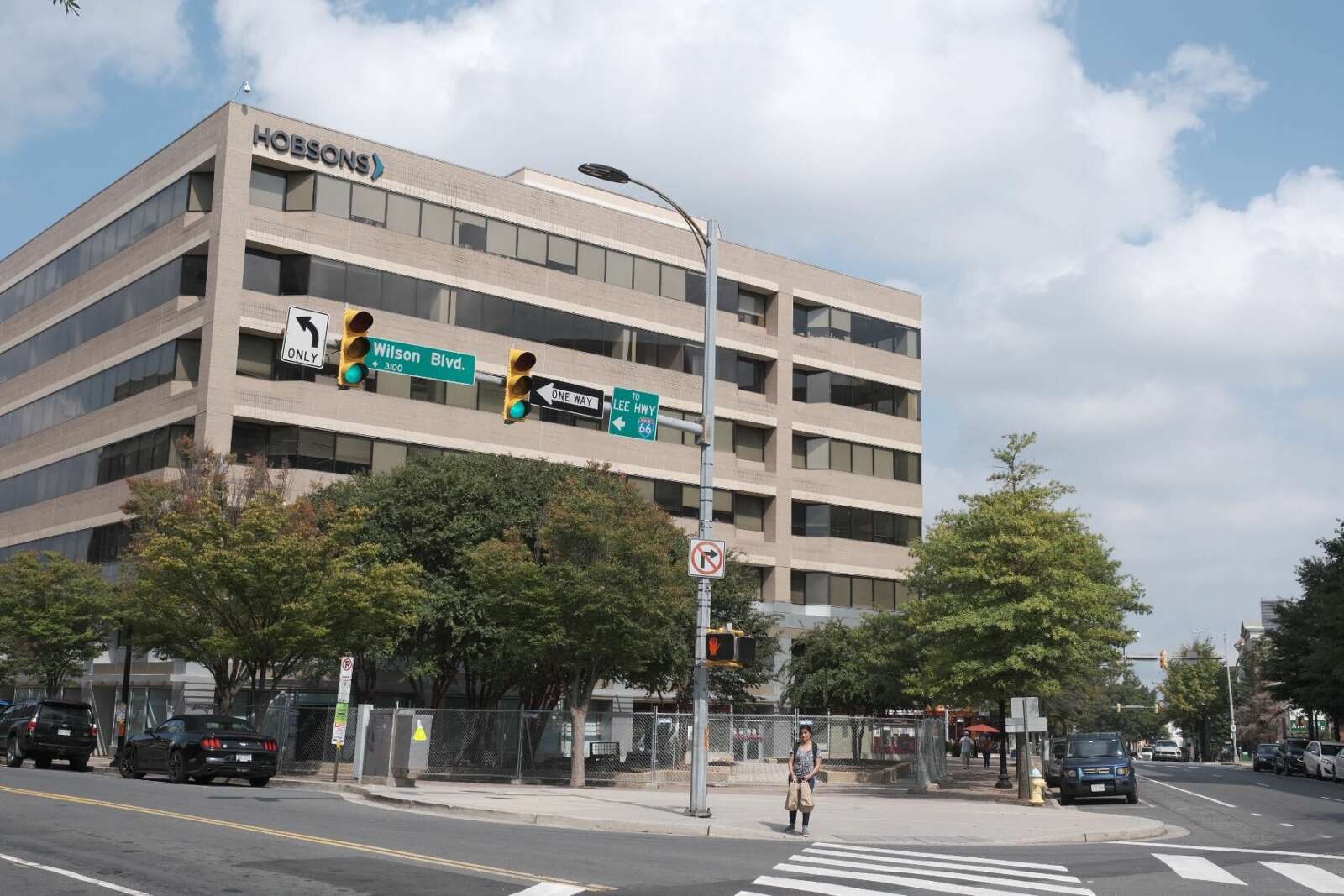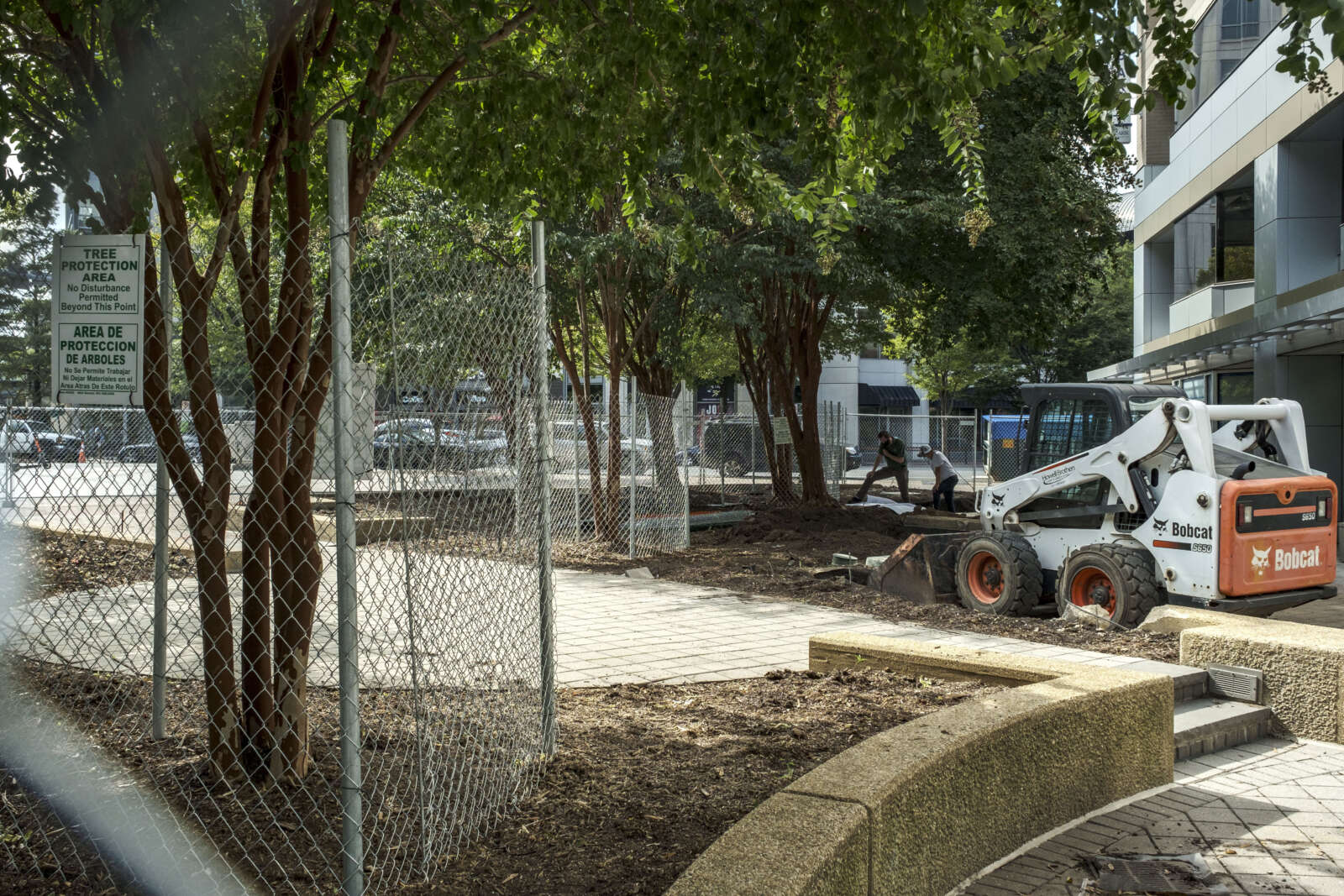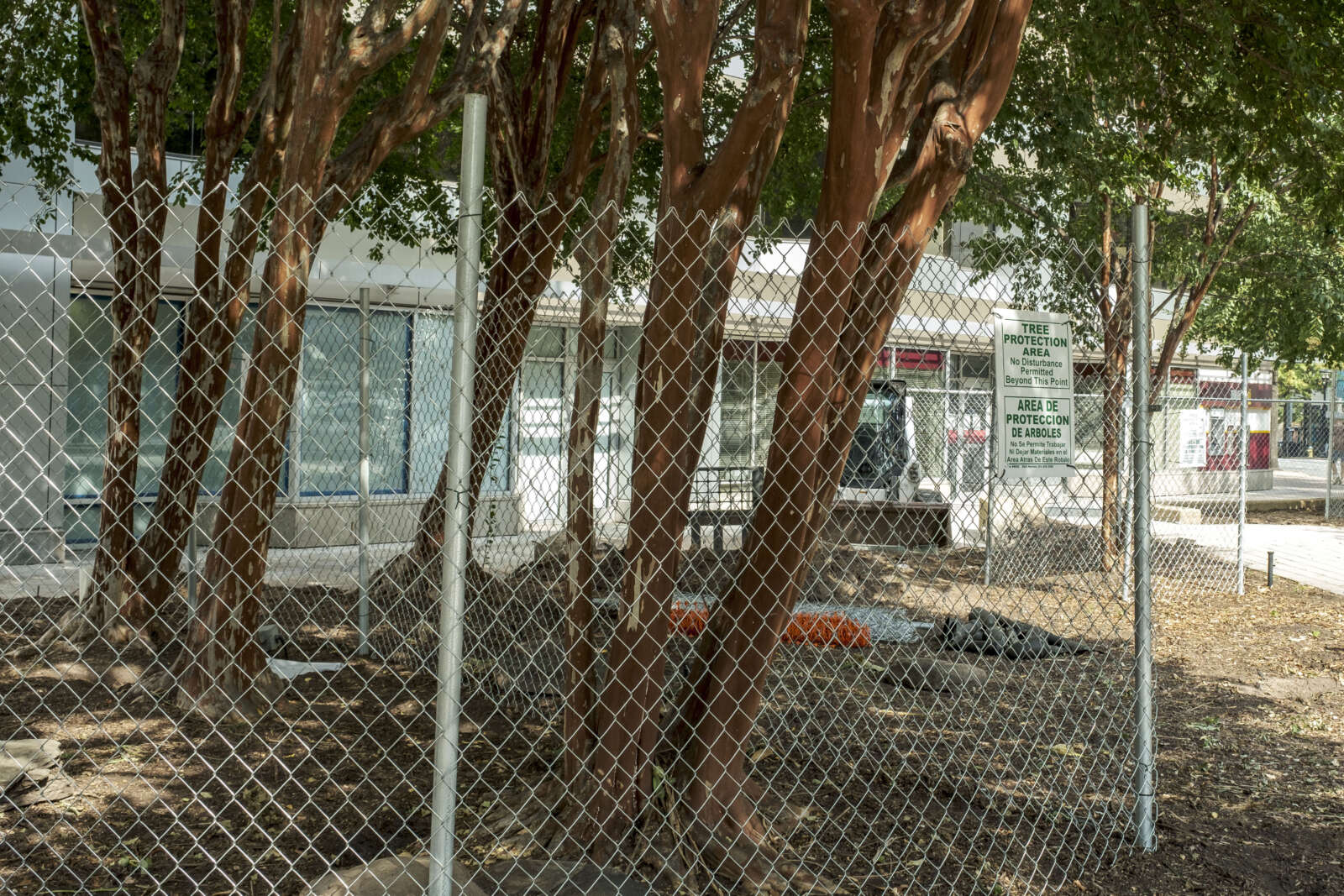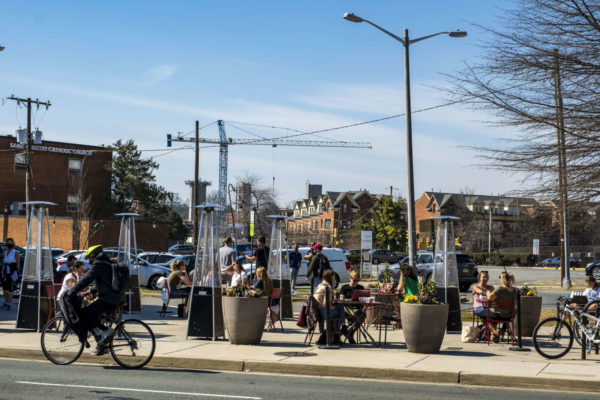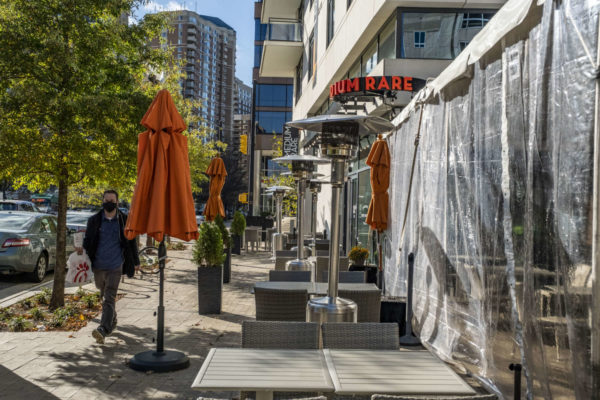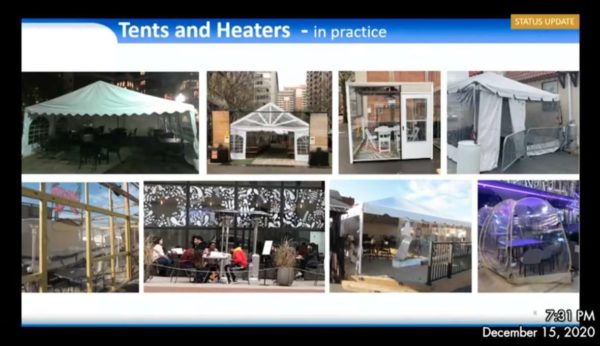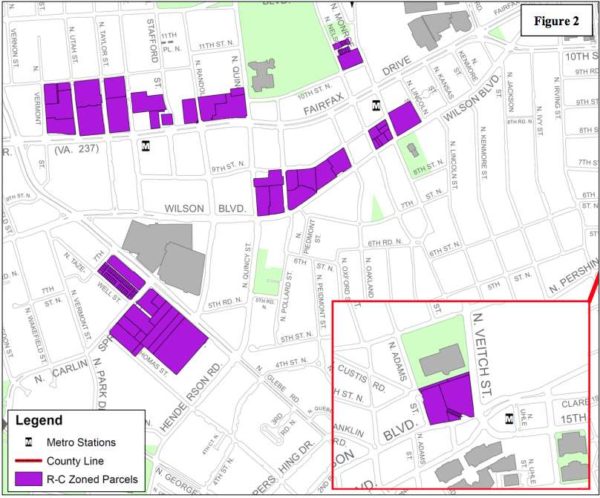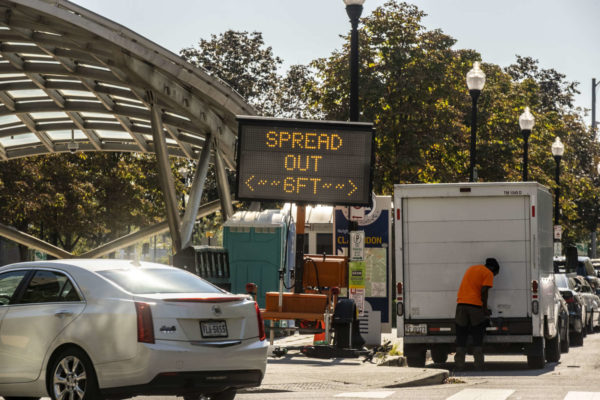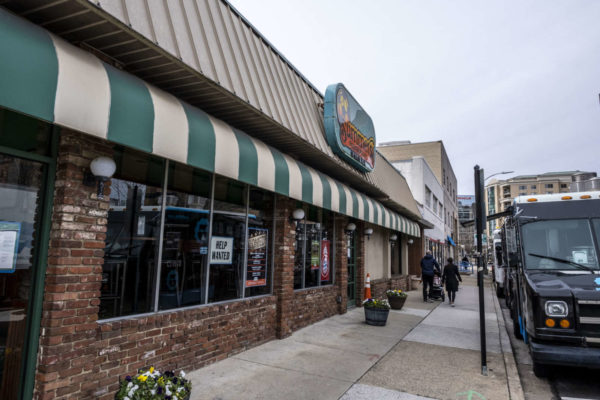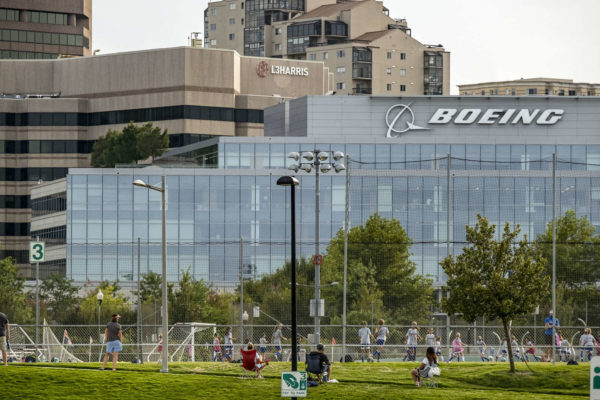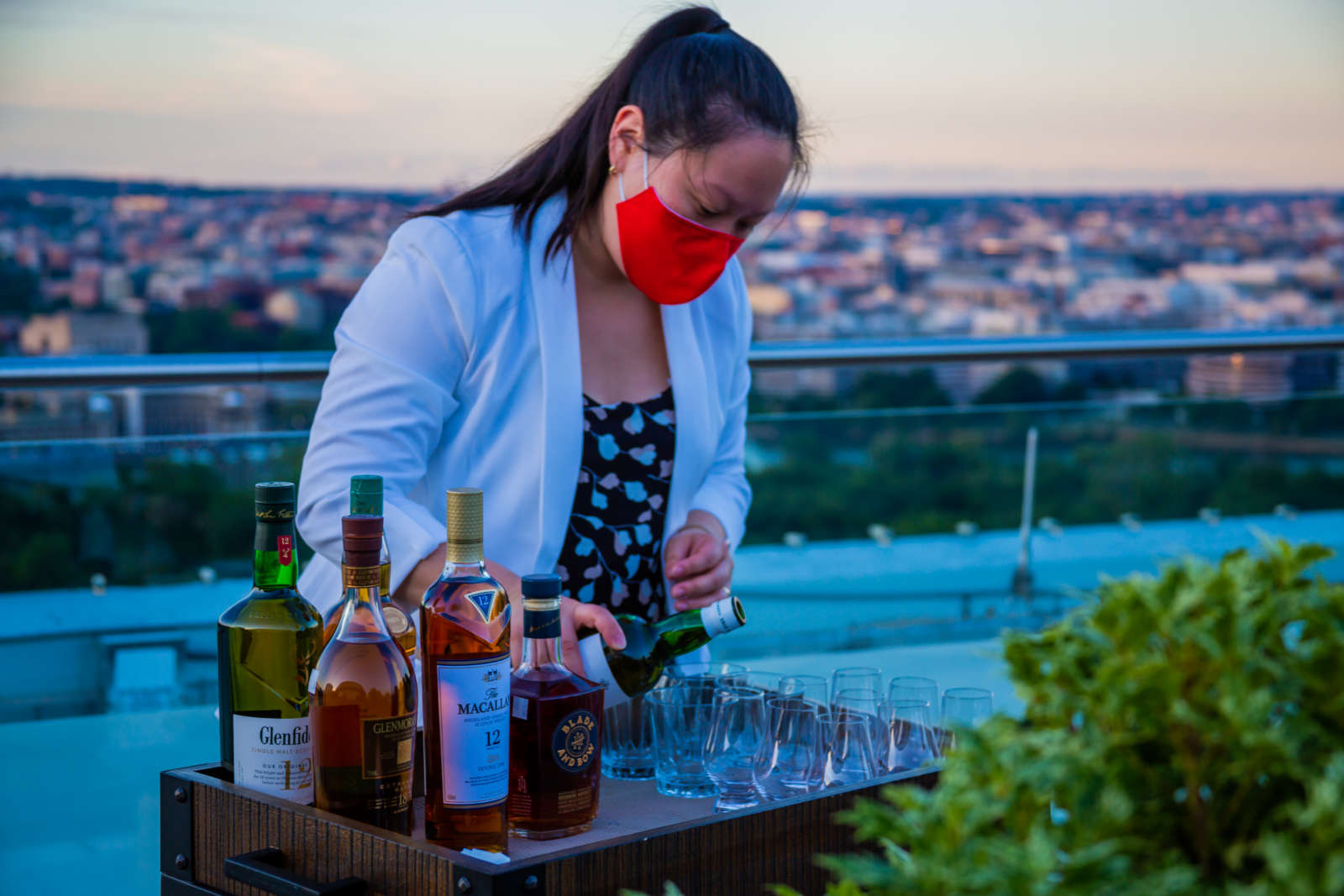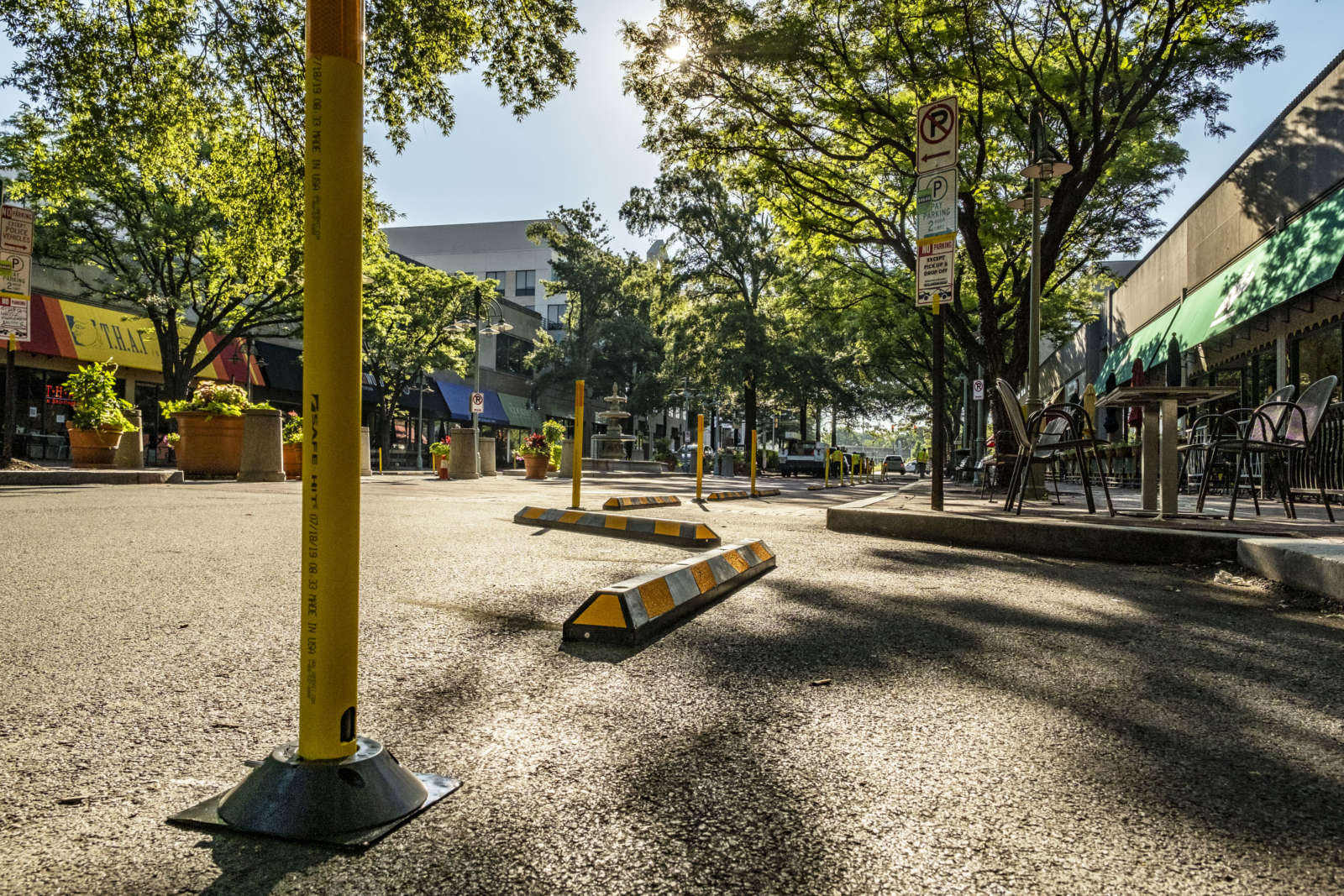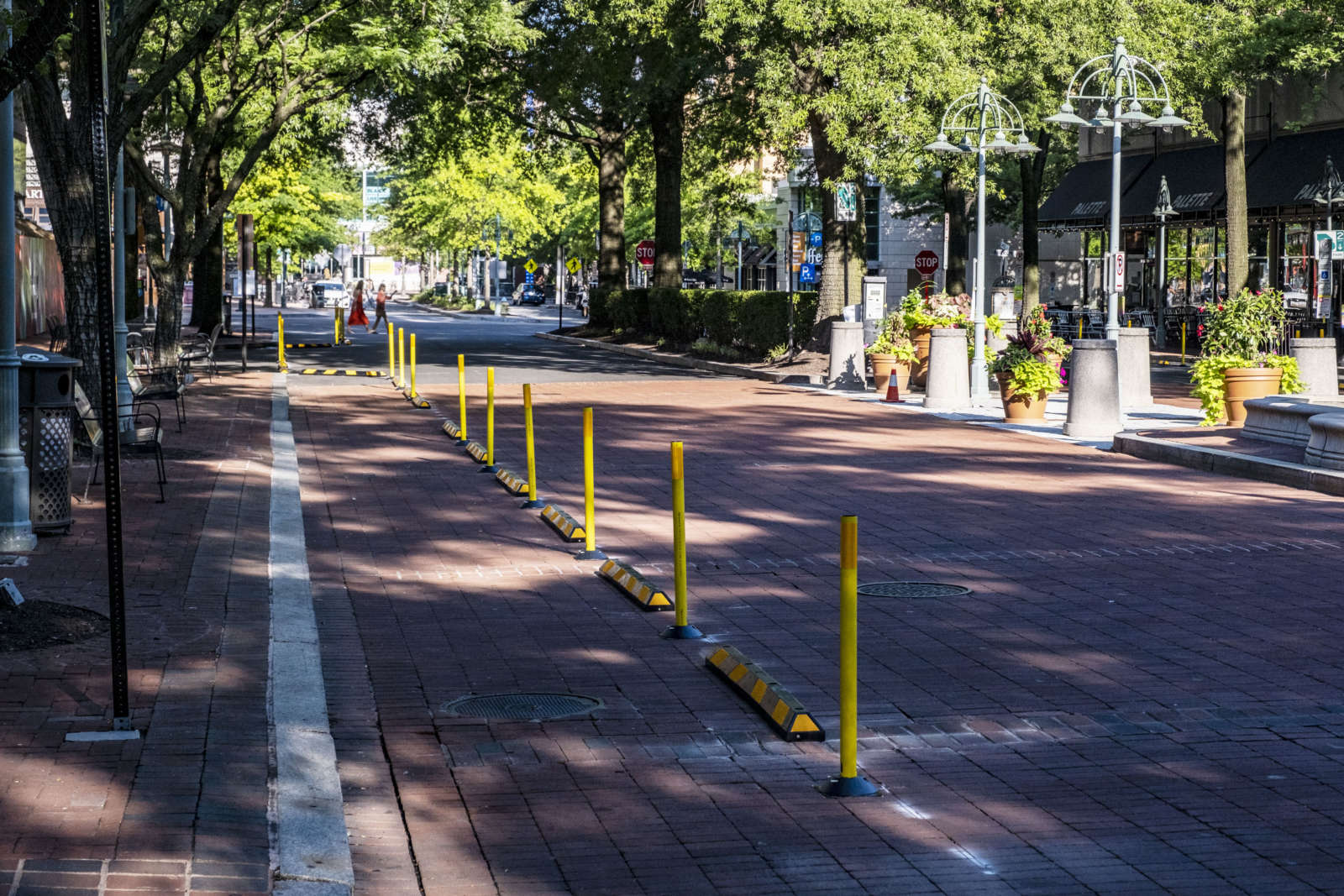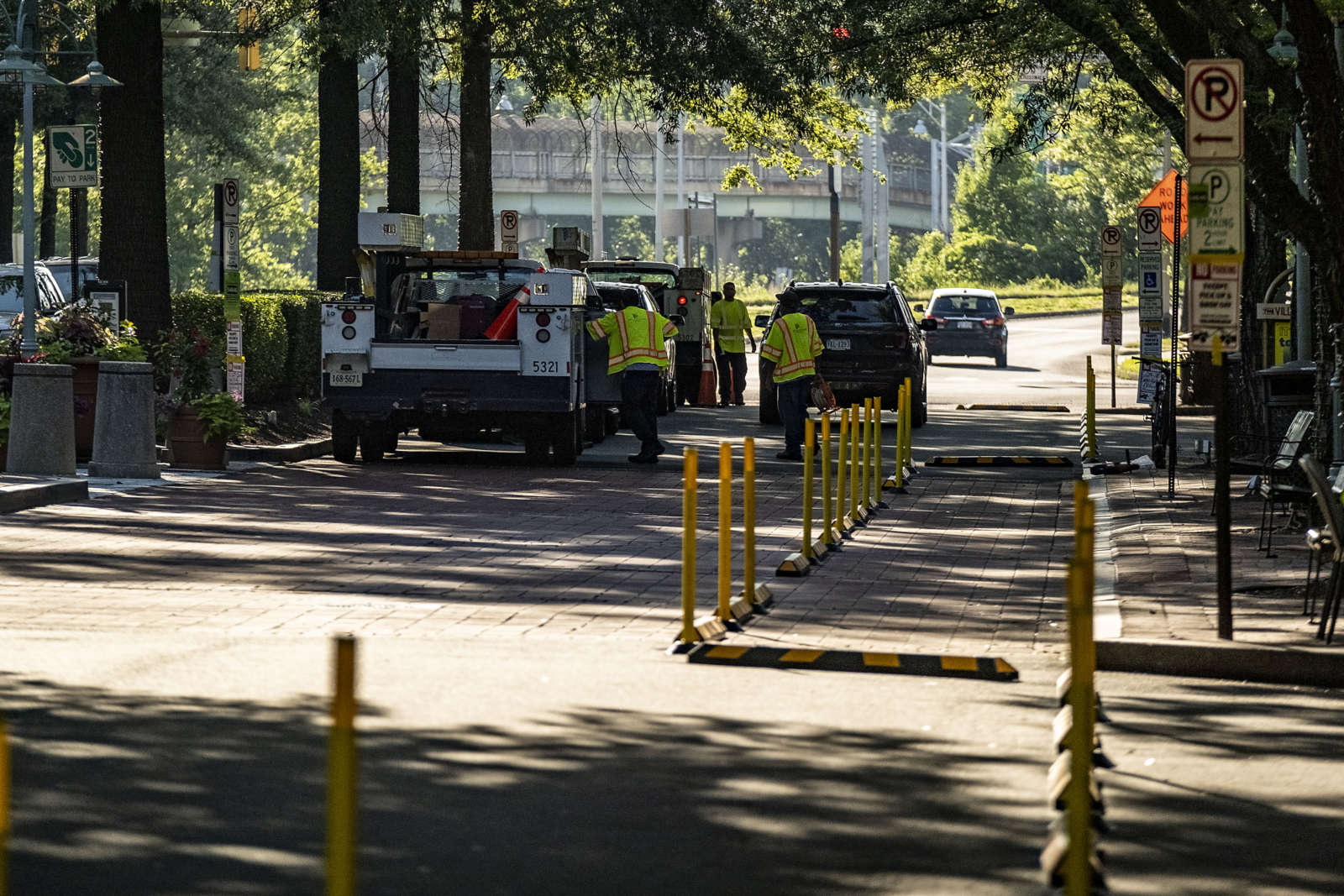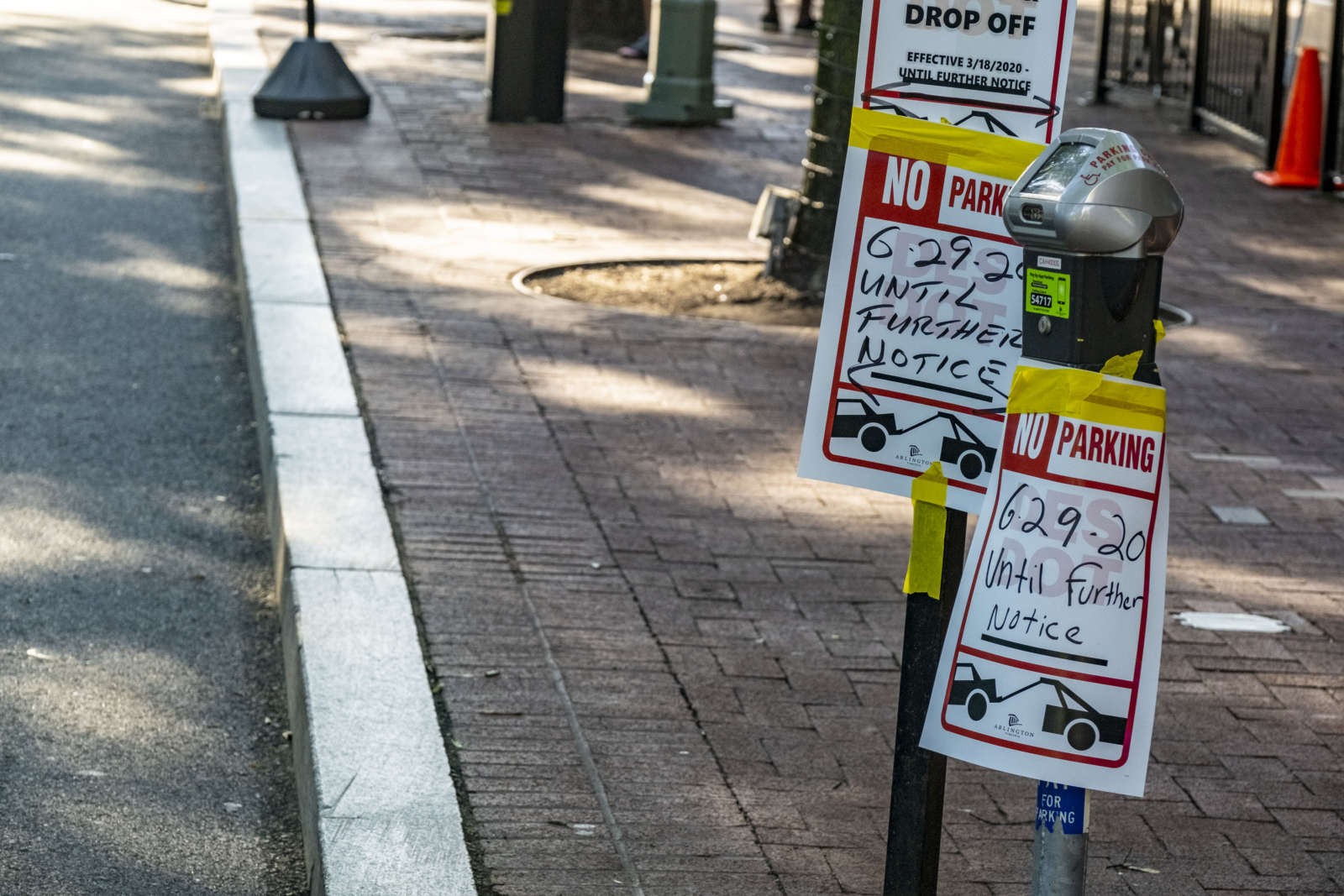Clarendon is getting a new café and bar with an emphasis on outdoor drinking and dining.
Construction permits were approved earlier this summer for a new restaurant at 3303 Wilson Blvd, with expansive outdoor seating and a 120 square foot outdoor kiosk. The new establishment will be called “Bar Ivy” and will also feature a nearly 3,000 square foot indoor space on the ground floor, permit applications suggest.
Last October the County Board considered a request from the owner of the office building to allow an outdoor café and kiosk in an existing, sparsely-used plaza area along Wilson Blvd, near the intersection with N. Highland Street and catty-corner from the Clarendon Metro station.
From our reporting at the time:
The proposed café would have 125 seats outside and 59 seats inside, according to a county staff report.
“The outdoor café will occupy the majority of the existing plaza and be enclosed by moveable planters,” the staff report notes. “Although all existing trees will be maintained, the existing raised planter walls will be redesigned to accommodate the outdoor seating.”
The kiosk will serve “grab-and-go beverages” to both passersby as well as those dining at the outdoor café. It’s being considered by the County Board separately from the café.
“The kiosk will operate the same hours as the restaurant and outdoor café and will be located on private property at the corner of Wilson Boulevard and North Highland Street,” the staff report says.
According to a county staff report, the approval was granted on the condition that it applies to just one restaurant operator: a company called Meowlington LLC.
The LLC was formed in March 2020 by Greg Algie, records show. Algie was a business partner in the former Fado Irish Pub in D.C.’s Chinatown neighborhood and is the founder of Blagden Hospitality Group, the company behind a number of trendy D.C. restaurants including Tiger Fork, Calico, The Fainting Goat and Primrose.
Construction permits for the new restaurant were issued to Hospitality Construction Services, which counts Tiger Fork among its former projects. The company’s past projects also include the Ballston Quarter food hall and The Italian Store.
Outside 3033 Wilson Blvd today, fencing was up around the plaza and some excavation activity could be seen. Adjacent to the plaza, doors to an under-construction ground floor space were propped open.
There’s no word on when how long construction might take nor when the new restaurant may open, though such projects usually take a few months at a minimum.
A PR rep for Blagden Hospitality Group did not immediately respond to a request for comment.


